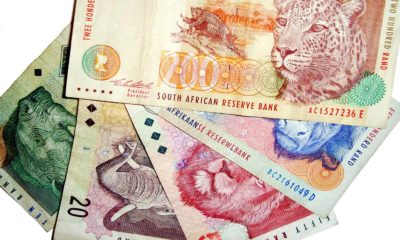- AfDB Approves 570m Rand Loan to Finance Affordable Housing in South Africa
The Board of Directors of the African Development Bank Group (AfDB) has approved a Senior Loan of ZAR 570 million to South Africa’s Housing Investment Partners Trust 2 -HIP2), also known as Vulumnyango Trust, to help finance affordable housing programmes in the country. The loan will help improve access to long-term affordable housing finance to South Africa’s lower-middle income earners currently with limited opportunities to access affordable mortgages.
It will also consolidate the growth of a strong affordable housing sector within South Africa. The project provides a demonstration effect of tapping local currency capital from Africa’s premier development bank, local asset managers and a State Owned Enterprise to foster South Africa’s economic growth through affordable housing. The project also reduces fiscal pressures on the South African government in respect of housing for a specific market segment and enables HIP2 to mobilize funding from other sources, including eventual access to South Africa’s capital markets.
Although South Africa is one of the more developed economies in Africa, the country still faces acute shortage of affordable housing in its main urban areas, estimated at 3 million units in 2014. This has resulted in more than 2,600 informal settlements springing up around 70 of South Africa’s major urban areas, making it very difficult for the government to reduce inequality and achieve inclusive growth targets.
Despite several government direct interventions in the sector, especially through the Reconstruction and Development (RDP) program which between 1994 and 2015 delivered over 2.9 million low cost houses for vulnerable and low income households, the housing needs of the lower-middle income earning households (otherwise referred to as the Gap Market) remain huge and unaddressed. HIP 2, which has now raised ZAR1.82 billion from National Housing Finance Company, Old Mutual Group, Futuregrowth and AfDB is targeting at offering more than 4,000 affordable mortgages to South Africa’s lower-middle income earners.
The intervention will generate other significant benefits including moving 2,500 – 6,500 out of informal settlements and create about 3,250 permanent jobs mainly for the youth. Overall, financing 4,386 affordable housing units is expected to generate over 10,000 jobs, including 950 – 1,296 direct jobs for women.
Stefan Nalletamby, Acting Vice President for Infrastructure Private Sector and Director, Financial Sector Development Department said: “The approved intervention will assist HIP2 in expanding and deepening South Africa’s housing finance sector and encourage orderly urban development for the provision of basic utilities such as water, sanitation, roads and electricity. In this respect, it will improve the lives of South Africans whilst also assisting in creating new employment opportunities.”
Presenting the project to the Board, Stella Kilonzo, Head of Financial Markets Division noted that “by extending this Senior Loan, the AfDB adds onto its existing initiatives to support affordable housing, development of mortgage finance institutions and deepening of local currency capital markets on the continent.”
“This is an excellent example of how we can intervene in middle income countries, such as South Africa, with developed financial systems where we generate impact through private sector on the quality of life of lower middle income earners in a sustainable manner. It opens up opportunities for the Bank to intervene in the sub sovereign debt markets and offer policy solutions on urbanization. This is hugely important given the fact that, at 3.4%, Africa’s urbanization rate is the fastest globally,” added Senior Vice President Frannie Leautier who chaired the Board meeting.
The Bank’s intervention is in line with its High 5 priorities which build on the Ten Year Strategy for 2013-2022, and specifically the 5th priority of Improving the Quality of Life for the People of Africa. The five focus areas are key to transforming the lives of the African people and therefore consistent with the United Nations agenda on Sustainable Development Goals (SDGs).
It will also have multiplier effects on industries related to the real estate sector and the creation of jobs in the construction industry. The loan will complement South African government’s efforts to develop a self-sustaining long-term affordable mortgage market in the country.
Furthermore, the project fulfils one of the Bank’s priority objectives to support investments that contribute to the widening and deepening of financial markets in Africa, and enabling the private sector to mobilize and access long term-local currency funding from local financial markets. The project will contribute to the growth of bonds backed by affordable housing mortgages as an investible asset class on South Africa’s bond markets.


 Naira4 weeks ago
Naira4 weeks ago
 Naira4 weeks ago
Naira4 weeks ago
 Travel4 weeks ago
Travel4 weeks ago
 Naira3 weeks ago
Naira3 weeks ago
 Naira4 weeks ago
Naira4 weeks ago
 Jobs4 weeks ago
Jobs4 weeks ago
 Investment4 weeks ago
Investment4 weeks ago
 Travel4 weeks ago
Travel4 weeks ago

























